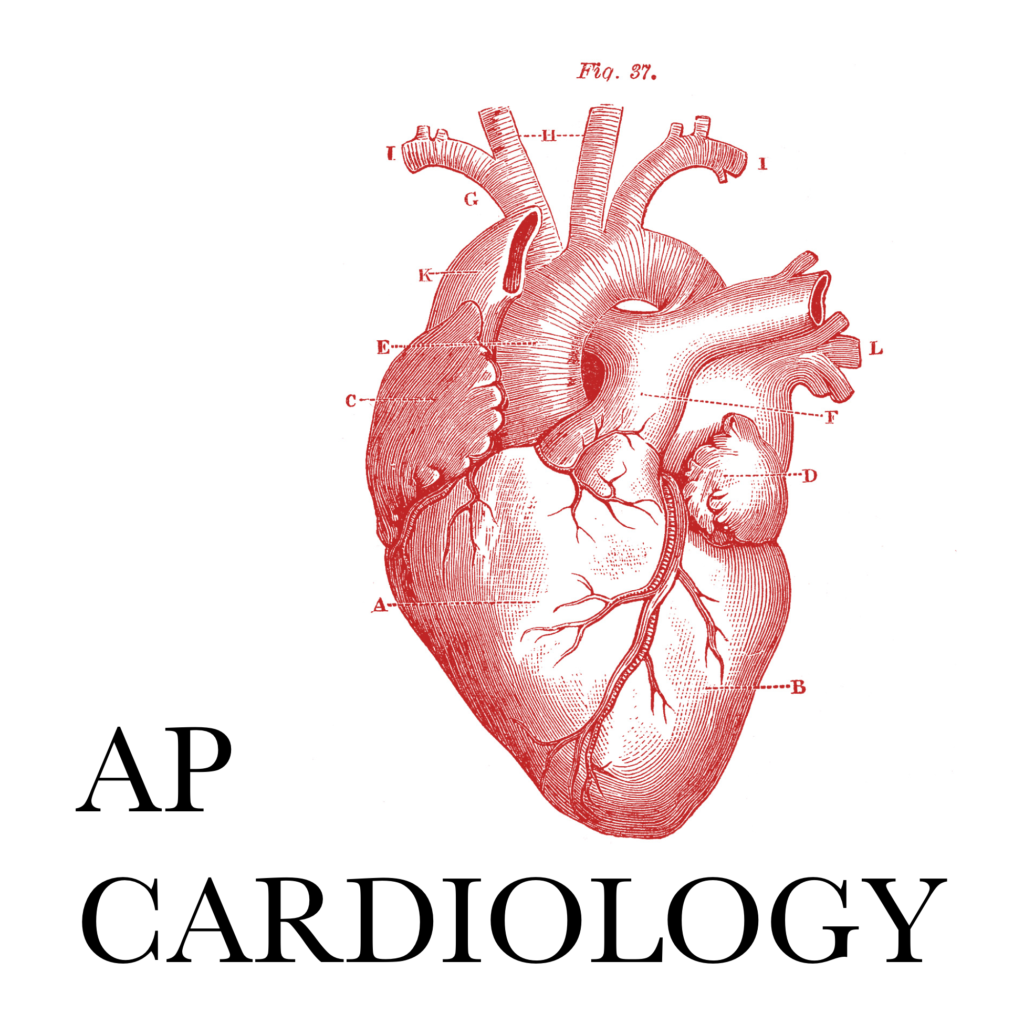Stay ahead of heart disease with Cardiology Jupiter’s approach
Stay ahead of heart disease with Cardiology Jupiter’s approach
Blog Article
Recognizing the Relevance of Cardiology in Modern Healthcare Services
Cardiology plays a crucial function in contemporary health care, especially as heart problem proceeds to be the leading root cause of death worldwide. Developments in diagnostics and therapy have actually changed individual care, allowing earlier interventions and improved outcomes. Additionally, the shift towards preventive cardiology encourages people to handle their health and wellness proactively. As technology remains to progress, the assimilation of innovative solutions might further redefine cardiology's effect on public wellness, motivating a closer examination of arising fads and their ramifications.
The Occurrence of Cardiovascular Disease and Its Effect on Public Health
Heart disease continues to be the leading reason of death internationally, its impact expands far past private clients to affect public wellness systems and economic climates. The high prevalence of heart condition places a substantial pressure on health care sources, requiring raised funding for avoidance, treatment, and rehabilitation programs. Public health campaigns have to deal with danger factors such as weight problems, smoking cigarettes, and sedentary way of lives, which add considerably to the rising incidence of heart conditions.Moreover, the financial worry connected with heart problem is tremendous, encompassing not only straight clinical costs however additionally indirect expenses associated to lost performance and early death. Communities deal with difficulties in taking care of these prices, usually leading to variations in health care gain access to and end results. As the populace ages and lifestyle-related threats continue to intensify, the necessity for reliable cardiology treatments comes to be paramount. Dealing with heart illness is not only a matter of individual wellness yet additionally a vital public health and wellness concern.
Advancements in Cardiac Diagnostics and Imaging Techniques
Recent innovations in heart diagnostics and imaging strategies have actually changed the area of cardiology, improving the capability to discover and keep track of heart diseases. Methods such as cardiac MRI, CT angiography, and echocardiography have become increasingly sophisticated, providing detailed pictures of heart frameworks and features. These techniques enable the early recognition of problems like coronary artery disease, cardiac arrest, and valvular disorders.Moreover, improvements in non-invasive diagnostics, such as wearable technology and remote surveillance gadgets, have encouraged clients and doctor. These tools facilitate real-time monitoring of heart rhythms and other necessary signs, bring about timely treatments. Furthermore, expert system is being incorporated right into imaging evaluation, improving precision and efficiency in medical diagnosis.
Innovations in Therapy Options for Heart Conditions
Current developments in cardiology have actually led to considerable innovations in treatment alternatives for heart disease. These include innovative surgical methods that boost procedural results and arising drugs that provide brand-new methods for therapy. As the field progresses, these innovations play an important duty in boosting client care and end results.
Advanced Surgical Techniques
Innovations in surgical methods have changed the landscape of cardiology, supplying new hope for clients with heart problems. Minimally intrusive treatments, such as catheter-based treatments, have significantly minimized healing times and health center stays. Techniques like robotic-assisted surgical treatment improve precision, enabling specialists to browse intricate physiological frameworks with better precision. In addition, innovations in imaging technology facilitate real-time visualization during treatments, boosting end results. Transcatheter aortic valve replacement (TAVR) exemplifies an advancement in treating aortic constriction, making it possible for shutoff replacement without open-heart surgical treatment. Additionally, hybrid approaches that combine catheter-based and medical techniques offer tailored solutions for numerous heart concerns. These innovative surgical techniques not just improve patient security however likewise broaden treatment alternatives, emphasizing the essential function of development in modern cardiology techniques.
Arising Treatments and medications
As the landscape of cardiology proceeds to progress, emerging drugs and therapies play a critical duty in improving therapy choices for heart conditions. Technologies such as unique anticoagulants and advanced lipid-lowering representatives have changed the management of cardio diseases, substantially minimizing patient morbidity and death. Additionally, the growth of gene treatments and regenerative medication provides encouraging opportunities for dealing with conditions formerly regarded permanent. Clinical trials are consistently exposing the efficiency of these therapies, pushing the borders of traditional therapies. The combination of electronic health technologies assists in tailored medication, allowing for tailored treatment plans based on hereditary and way of living factors. Collectively, these developments highlight the vibrant nature of cardiology, boosting person outcomes and redefining standards of care in contemporary health care.
The Function of Preventive Cardiology in Individual Treatment
Preventative cardiology plays an essential role in client care by concentrating on the identification of risk elements that contribute to cardiovascular disease. Through lifestyle modification techniques and early detection techniques, healthcare service providers can efficiently decrease the incidence of cardiovascular occasions - Dr Garcia. This proactive strategy not just enhances individual results but also advertises lasting health and wellness
Danger Variable Recognition
While cardio conditions stay a leading cause of morbidity and mortality worldwide, effective threat aspect identification serves as a keystone of preventative cardiology. Determining risk factors such as high blood pressure, diabetes mellitus, household, and hyperlipidemia background is vital for very early intervention. Healthcare specialists use various evaluating methods to review these elements, enabling tailored preventive procedures. Additionally, recognizing a client's way of living choices, such as smoking cigarettes and physical inactivity, additionally informs danger assessments. This complete evaluation allows medical professionals to establish tailored care plans focused on mitigating risks. By prioritizing threat factor identification, medical care systems can enhance client end results and reduce the overall problem of cardio diseases, eventually adding to boosted public health techniques and source appropriation.
Lifestyle Adjustment Methods
A plethora of studies highlights the vital duty of way of living modification strategies in decreasing cardiovascular illness threat. These approaches incorporate nutritional changes, increased physical activity, cigarette smoking cessation, and weight administration. By embracing a heart-healthy diet plan abundant in fruits, vegetables, whole grains, and lean proteins, individuals can reduce cholesterol levels and high blood pressure. Regular physical activity strengthens the heart and improves overall cardiovascular health. Additionally, giving up smoking cigarettes substantially lowers the threat of heart problem and boosts recuperation rates for those with existing problems. Weight monitoring additionally adds to cardiovascular health by mitigating various other danger aspects such as diabetic issues and hypertension. Implementing these way of living transforms not only promotes private health however likewise works as a cornerstone of preventive cardiology in person treatment.
Early Discovery Strategies
Way of life modifications greatly add to minimizing heart disease dangers, but they are most reliable when combined with early discovery methods. Preventative cardiology highlights the importance of recognizing prospective heart issues prior to they escalate into severe conditions. Strategies such as high blood pressure surveillance, cholesterol screening, and progressed imaging innovations like echocardiograms play crucial functions in evaluating cardio health. Biomarkers and hereditary screening likewise boost the precision of very early detection, enabling for customized preventive approaches. Regular heart threat assessments encourage doctor to intervene proactively, possibly preventing heart assaults and strokes (Dr Garcia). By integrating these very early discovery methods into regular treatment, patients can take advantage of timely way of living treatments and targeted treatments, eventually boosting end results click over here and enhancing lifestyle
Integrating Technology Into Cardiology Practices
As improvements in modern technology remain to improve various fields, the combination of ingenious devices and systems right into cardiology techniques has actually come to be important for improving individual treatment and results. Telemedicine systems allow cardiologists to check people from another location, improving access to care while reducing the burden on healthcare facilities. Wearable devices, such as smartwatches, enable continuous heart rate monitoring, alerting both patients and physicians to possible concerns in real-time. In addition, expert system (AI) is being used to examine large amounts of cardiac information, aiding in very early diagnosis and customized treatment strategies. Advanced imaging methods, including 3D echocardiography, enhance visualization of heart frameworks, bring about a lot more exact interventions. Electronic wellness documents (EHRs) simplify patient details administration, making sure that cardiologists have immediate accessibility to critical information. Together, these technical improvements are transforming cardiology, advertising positive management and boosted health and wellness outcomes for people with cardiovascular problems.
The Value of Patient Education And Learning and Engagement
Individual education and learning and interaction play official statement a crucial function in the monitoring of cardio health and wellness. By equipping clients with expertise about their problems, therapy options, and way of life changes, healthcare carriers empower individuals to take an energetic duty in their care. This positive technique can lead to enhanced adherence to recommended drugs, nutritional changes, and exercise programs, inevitably reducing the risk of complications.Engagement likewise promotes a solid patient-provider partnership, encouraging open communication and count on. When individuals really feel educated and entailed, they are more probable to voice issues and ask concerns, which can cause much better professional end results. In addition, instructional sources, such as workshops or electronic systems, can boost understanding and advertise self-management approaches. Overall, prioritizing patient education and engagement is essential for enhancing cardiovascular wellness, boosting top quality of life, and lowering medical care prices connected with heart diseases.
Future Patterns in Cardiology and Their Potential Impact

Regularly Asked Inquiries
What Way Of Life Changes Can Reduce Heart Condition Danger?
The present question addresses way of living modifications that can significantly reduce heart condition danger. Cardiology care. Adopting a well balanced diet plan, engaging in normal physical task, maintaining a healthy and balanced weight, handling stress, and staying clear of tobacco can especially enhance cardiovascular health and wellness
How Can I Identify Early Indicators of Heart Issues?
Identifying early indicators of heart issues entails tracking signs and symptoms such as breast discomfort, shortness of breath, exhaustion, and irregular heart beat. Prompt understanding of these indications can prompt essential medical analysis and intervention for much better end results.
What Are the Differences In Between Cardiologists and Heart Surgeons?
The differences in between cardiologists and heart cosmetic surgeons depend on their roles; cardiologists mostly More hints detect and manage heart conditions with non-invasive approaches, while cardiac specialists execute surgical procedures to remedy architectural heart issues. Each plays a crucial, distinctive duty.

Exactly how Typically Should I Get My Heart Health Checked?
The regularity of heart health and wellness checks varies based on specific danger elements. Generally, grownups ought to undergo analyses every one to two years, while those with present conditions might need more constant evaluations as advised by medical care experts.
What Role Does Genes Play in Heart Problem Threat?
Genetics greatly affects cardiovascular disease threat, with familial patterns showing inherited problems. Particular genetics can predispose people to hypertension, cholesterol problems, and other cardiovascular troubles, highlighting the value of hereditary screening in reviewing heart health and wellness. Heart condition remains the leading reason of death internationally, its impact prolongs much beyond private people to influence public wellness systems and economic climates. Public health and wellness efforts should resolve risk aspects such as excessive weight, smoking cigarettes, and inactive way of lives, which contribute substantially to the rising occurrence of heart conditions.Moreover, the financial burden connected with heart condition is tremendous, encompassing not only straight clinical prices but likewise indirect costs connected to shed productivity and premature mortality. Precautionary cardiology plays an essential role in individual treatment by focusing on the identification of danger aspects that add to heart disease. Fabricated knowledge (AI) and machine knowing are improving diagnostics and individual tracking, making it possible for very early discovery of heart diseases. The distinctions in between cardiologists and cardiac specialists exist in their duties; cardiologists largely diagnose and manage heart problems via non-invasive approaches, while heart doctors execute medical treatments to remedy structural heart problems.
Report this page